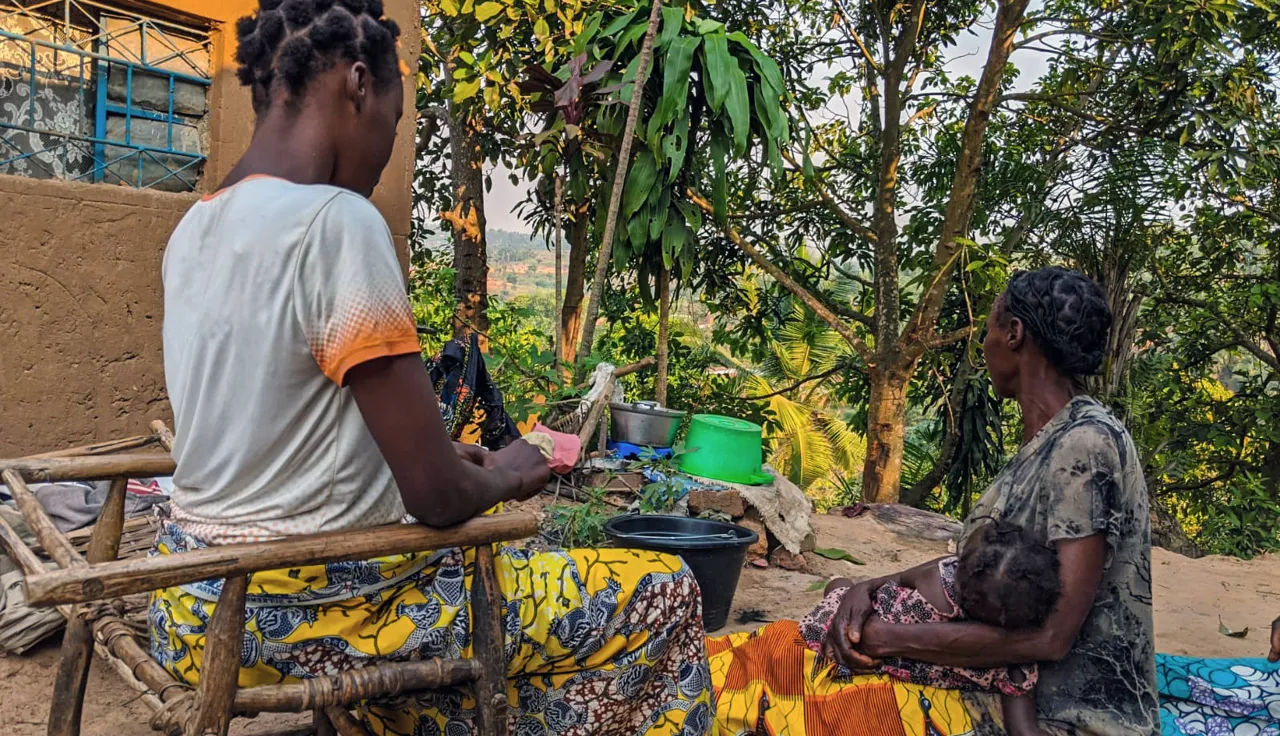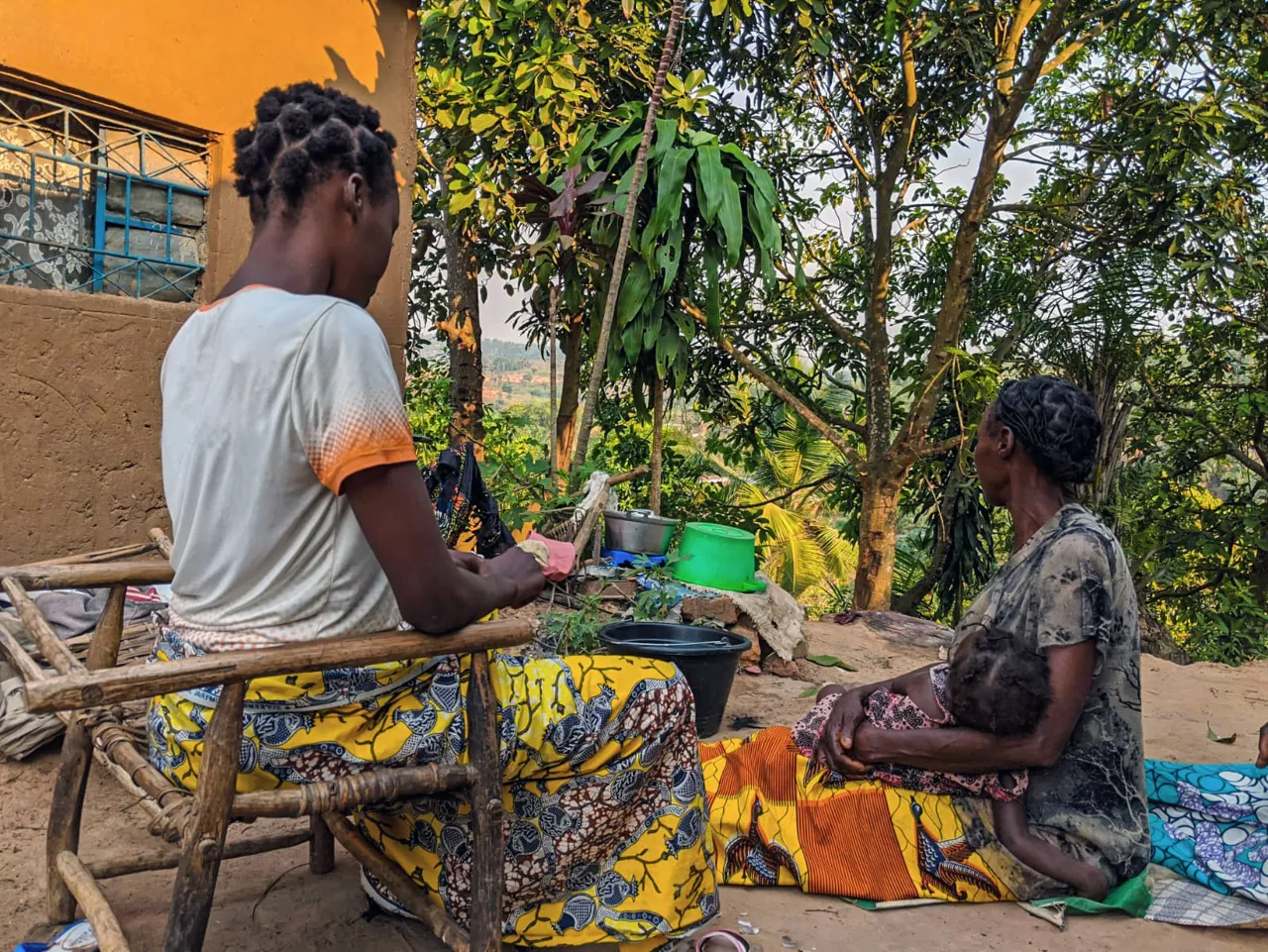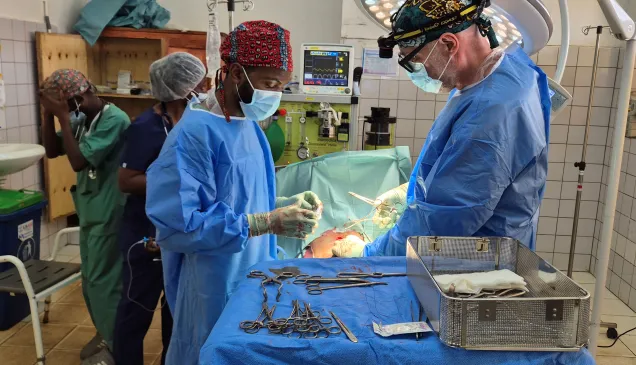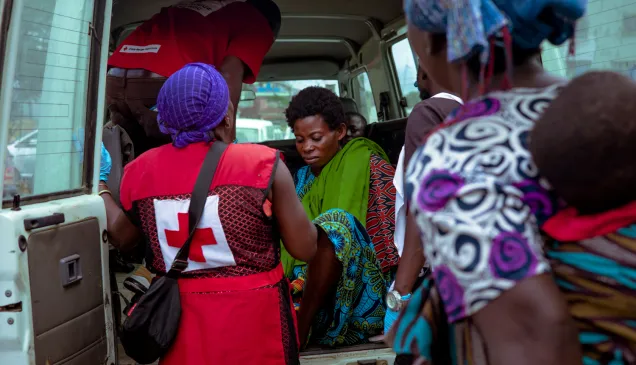DRCongo: Sexually assaulted as a teen, Thérèse gets her confidence and dignity back

Three years after being raped by armed men in Kasaï Province, Thérèse* is trying to get over the physical and psychological trauma. Financial aid and medical treatment in a celebrated hospital in Bukavu is giving her a new start.
In 2017, Thérèse thought she had escaped the violence raging in the area where she lived when she fled to a village 80 km away. But when she got there, three armed men attacked and raped her. Although she was deeply traumatized, she is doing better now. "I no longer avoid people. On the contrary, people now come to see me to see my miraculous transformation," she says.
The rape left her pregnant – aged just 13 – and a child was born.
The stigma of sexual assault and the taboo of bringing up a child conceived in such circumstances meant Thérèse was frozen out by the people around her and given no support. The after-effects of her injuries – a fistula that left her constantly incontinent – added to the community's rejection of her.
In distress and far from home, Thérèse had no one she could count on for help. Her father had been killed in the violent clashes, and she didn't know where her mother or sister were. "I was desperate. I was just waiting to die," she says.
Accused of bringing bad luck
One day, however, someone mentioned Thérèse to an ICRC team working in the area. When they met her, she told them she wanted to see her family again. A search was carried out and, with the help of the local Red Cross, Thérèse was reunited with her mother in June 2020. "I was lost, far from my home village, unable to do anything for myself. I didn't think I'd see my mum again. When it happened, I cried tears of joy," she says. Her sister, unfortunately, has not yet been found.

Thérèse (left), with her mother and child, sits in front of her house after being discharged from Panzi Hospital
Despite the reunion, the villagers where she came from did not show much empathy. Quite the opposite: "No one would come near me," says Thérèse. "They said I brought bad luck and that I should be sorry. It really hurt my mum, who wanted to commit suicide."
Then treated by a Nobel Prize winner
Thérèse needed serious medical treatment for injuries she'd sustained by being raped and giving birth at such a young age. The ICRC decided to transfer her to a hospital in the east of the country for reconstructive surgery. Unfortunately, she had to wait several months before she could go because of the restrictions put in place to tackle the COVID-19 pandemic.

Sexual violence survivors stand together at the Panzi Hospital in Bukavu.
But in August 2020, accompanied by her mother, she was finally admitted to Panzi Hospital, which was run by Dr Mukwege, a Nobel Prize winner. "A lot of people who saw me before I went to hospital thought I wasn't going to survive," she says. Four months on, Thérèse was given a clean bill of health and discharged.
"I feel good. The bad smells are gone, and my periods have gone back to normal," she says. "I've still got medicine to take, and I've been told I have to rest a lot."
"I've got my taste for life back"
Back in her village, Thérèse still faced a lot of obstacles. Without any money, how was she going to reintegrate into the community? How could she overcome being ostracized? Would she be forced into sex work to survive, as sometimes happened in situations like hers?
In this 2012 video (contains material that may be disturbing), medical staff in Panzi Hospital describe the terrible psychological and physical consequences of sexual violence. The pain for survivors remains just as severe today.
So Thérèse could stand on her own two feet, we gave her cash and a mobile phone, as well as training to run her own little business. Although for the moment, she still needs to rest and recover. Her mother is there to help and has moved into buying and selling palm oil to make a living. Her daughter, meanwhile, has decided to sell biscuits and sweets opposite a school near her home. "They're small and light, so it won't tire me out," she says.
Thérèse hopes to take up her studies again after she's fully recovered from the surgery and has set her sights on making clothes. "It's always been my dream. I feel strong and have got my taste for life back. I feel good in my body again."
*Name has been changed.
Dr Denis Mukwege, 65, is a gynaecologist and defender of human rights in the Democratic Republic of the Congo. Nicknamed "the man who fixes women", he won the Sakharov Prize in 2014 and the Nobel Peace Prize in 2018 for a lifetime's work dedicated to fighting sexual violence. He currently works at the Panzi Hospital, South Kivu Province, in the eastern part of the country. The hospital is renowned for its expert treatment of gynaecological pathologies, in particular reproductive problems and injuries linked to sexual violence, as well as providing holistic treatment for survivors of sexual violence. The ICRC has been working with Dr Mukwege continually for more than 20 years. From 1997, ICRC war surgeons worked alongside Dr Mukwege at Lemera Hospital, where he was the director, to help thousands of women to recover from their injuries. The collaboration continues to this day at Panzi Hospital, the place where the ICRC referred Dr Mukwege's very first patient in 2002.
See our page Addressing sexual violence



